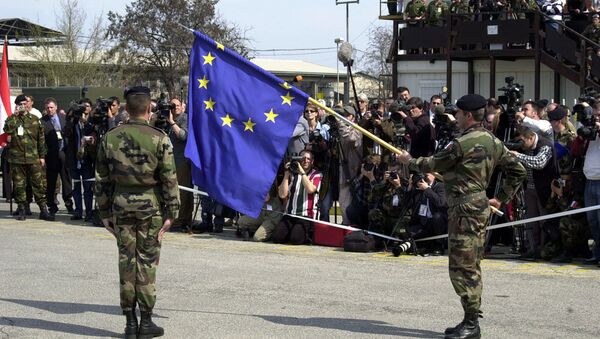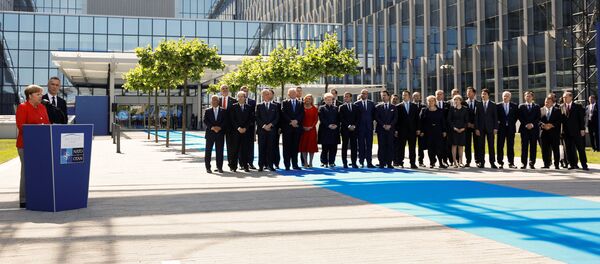"I think that in the first place it reflects a broader issue: people are fed up with austerity. And in the period, when this is happening, telling people that they have to spend more on defense, something that doesn't do any good for their daily life, of course, is not going to be popular," the expert said.
"Mainstream media, here in Europe, are totally on the side of NATO, are totally reproducing the arguments proposed by NATO. And even then, they do not manage to get the full support of their own population," he continued.
On May 25, US President Donald Trump said at a NATO summit in Brussels that the other members of the alliance should pay their "fair share" and pointed out that only five of the member states were allocating 2 percent of their GDP to defense, which is the target set at the 2014 summit in Wales.
However, according to Vanoost, the set target is not an obligation, as it is being presented by many European and US media outlets.
"We should emphasize that…in reality NATO member states have bilateral agreements on whether they want to increase their defense budgets or not. It's not an obligation. It is something that is being said to the people to make it look as though they cannot do otherwise. But this is definitely not the case," the expert noted, adding that the idea of boosting defense spending in NATO countries is totally "unreasonable."
At the same time, 44 percent of French, 36 percent of Germans and 31 percent of Italians are in favor of the increase.
In the United Kingdom, which unlike the other three countries, allocates more than 2 percent of its GDP to defense, 54 percent of respondents supported maintaining military spending at the same level, while 25 percent were against it.




